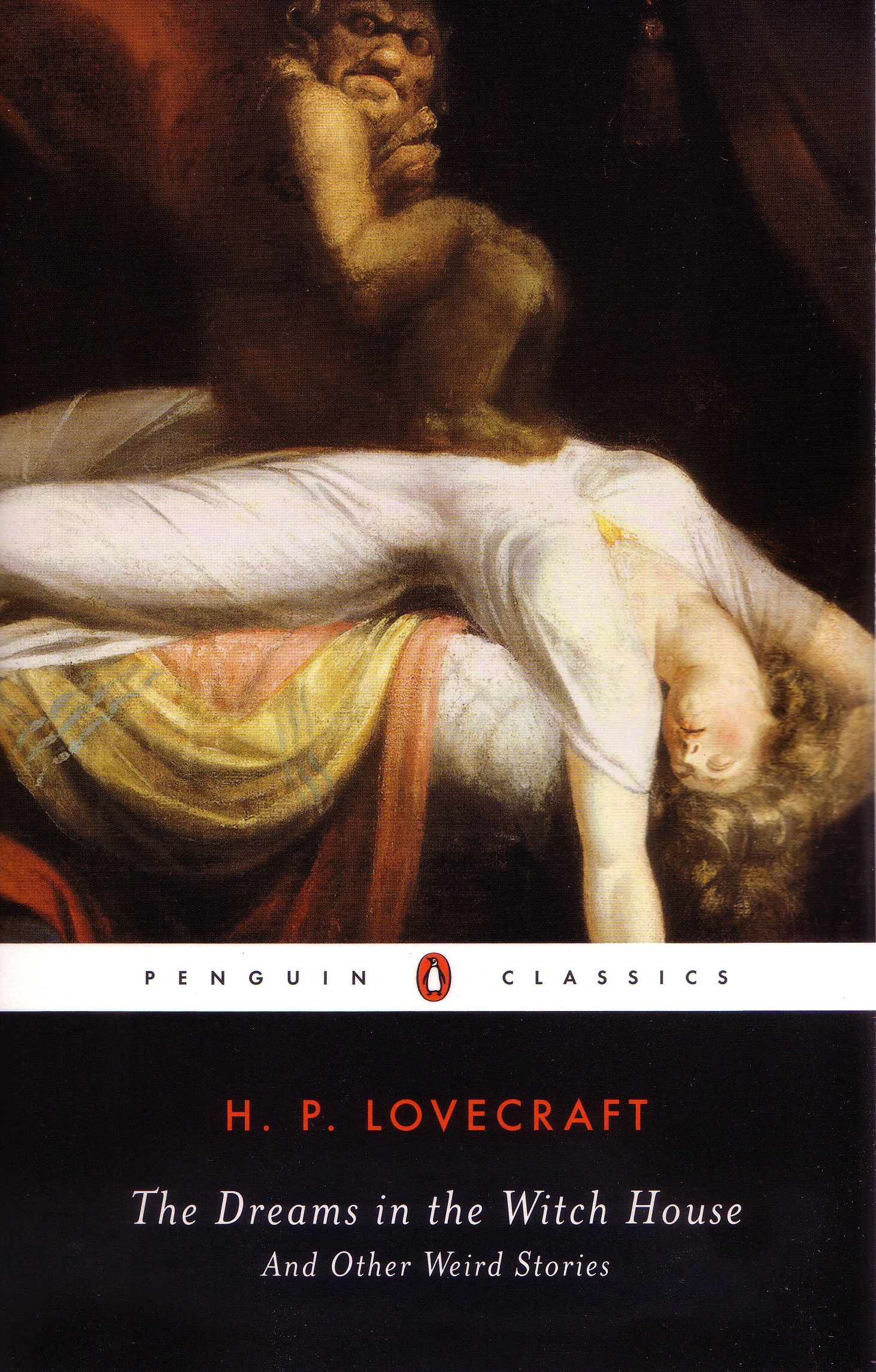I first came across Lovecraft as a clerk in a bookstore years ago, though I was not, at that time, tempted to read him. I am not a fan of horror fiction, and the lurid covers of the two books we carried by him did not impress. However, I've come to know him in other ways, through the work of others who read him and were influenced by him, most notably Paul Bowles. But one can also see echoes of his predescessor Poe and a certain echo in the work of Latin America's fantastic realists. There is a gothicism and faux intellectualism that appeals in a way, as well as a certain ghost-tale folksiness. What does not appeal, for me, is his tendency to play up the weirdness, naming places and people by ancient made-up names, making it all not just surreal but clearly a world of fantasy so that the horror is of little true horror, even as he tells us how scary and horrifying everything is.
Year ago, I finally read a story of Lovecraft's online, a submarine adventure that proved actually really good--I was hoping for more with this book. Alas, it was not to be. The stories were strange but rarely carried much weight beyond that.
The first two tales in this collection introduce readers to Lovecraft's world. They are essentially histories, explanations of peoples and places, more than actual tales. It's with "The Terrible Old Man" that we begin to see actual plotlines and characters.
Many of the stories center on men coming face-to-face with what I might call "the eternal"--be it death or some spiritual force beyond the ability of our physical minds to fathom. This encounter generally results in a man's disappearance--and for those left behind a token of some sort of transformation that has occurred. For Lovecraft, then, this is what horror is: an encounter with the awesome that we should not behold. This doesn't necessarily equate to fear on the part of the reader (in fact, it rarely does) but rather fascination. Such is the case in a story such as "Hypnos," which recounts two men facing their own nightmares. The survivor of the tale finds that his friend is turned into some kind of statuette, one that others think the narrator himself has carved. If one is pulled along by the story it is by the descriptions not so much by suspense of what will happen.
The collection begins to draw to a close with a set of stories about one Randolph Carter, who descends into the land of dreams to search for, once again, "the eternal"--in this case the old ones/gods and the sunset city. The longest of these tales is more of a novella than a short story, "The Dream-Quest of Unknown Kadath." Here, as in many of the stories, familiar scenes and characters from other stories materialize. We visit, multiple times, Ulthar, which has become a land peopled by cats. All of this is in pursuit of the aforesaid sunset city. While a quest might make for good reading--I was reminded quite a bit of Tolkien's Lord of the Rings--here, the work plays out more like a medieval romance. The character undergoes various trials and performs various exploits among ghouls and other grotesque creatures, but the work seems more episodic than one with a culminating plot. In the end, the character finds that what he seeks is actually the landscape of his childhood.
And that's where the next story takes us--to Carter's childhood. Or rather, it is the story of Carter's disappearance as an older man, with a flashback to a time when he discovered "The Silver Key" that allows him to venture into this dream world. The next story, "Through the Gates of the Silver Key," focuses in part on the search for Carter and in part on Carter's adventures once he walks into the land of the silver key, reminiscent of the Kadath story explained above.
The title story of the collection involves a haunted house of sorts--a place wherein the lead character has bad dreams each night, dreams that he slowly comes to realize are in fact a reality of sorts. Too late, however, for he eventually succumbs to the evil. The house is later torn down. The last story in the collection, "The Shadow out of Time," focuses on a man who has amnesia for a few years, taking on the life of another, but who discovers that his body was actually taken over by another for a time, as their is an ancient race that lives on in and through others as it travels across space/time.
The macabre and strange, fanciful elements mixed with seeming historical detail place Lovecraft's New England work in the realm of Nathaniel Hawthorne, while his tone often makes him seem reminiscent of Poe. Both earlier writers have much to recommend them, but both also tend to be less than satisfying on some levels for modern readers, or at least this modern reader. I could say the same of Lovecraft's work.
Subscribe to:
Post Comments (Atom)







No comments:
Post a Comment